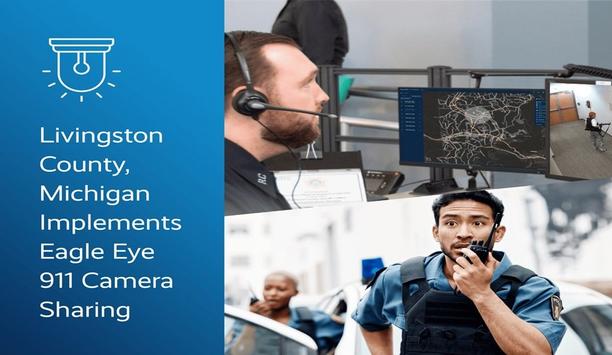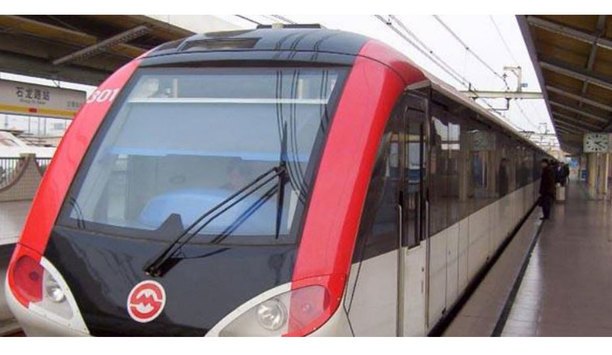With its duty of care to vulnerable patients, staff and visitors, along with the need to protect valuable assets, the healthcare sector is one of the most dependent upon reliable and well-designed security systems. Added to this, many healthcare trusts have to be perpetually mindful of budget requirements - so all investments have to provide excellent value for money.
TDSi is a global leader in integrated security systems and offers a wide range of solutions that cater for the numerous and often demanding security needs of the healthcare industry. These solutions also respect the need to provide the best value for money, offering highly demonstrable returns on the security investment.
Boosting security and convenience, whilst stretching budgets
Modern integrated security systems are well suited to the healthcare sector. Being able to ‘mix and match’ technology allows healthcare trusts to pick the security components they need for maximum protection. This could range from highly secure access control, CCTV and intruder alarms for sensitive areas such as a drugs storage area – right through to intensive care and vulnerable patients, secure stock for onsite retail outlets or controlling carparks. It also allows the hospital trust to stretch its budgets by utilising legacy systems already in place, for example analogue CCTV cameras, in areas where a new system is unnecessary and could be wasteful of previous investments.
Integrated security also makes it much easier and more cost effective to use a single system across an entire trust, or across a regional or national health authority. TDSi’s EXgarde software for example, offers a fully featured access management software solution that is flexible and highly scalable and can be centrally administered.
EXgarde is capable of controlling a single door at one site with a small number of users, right up to thousands of doors at multiple sites with thousands of users. It can also be integrated with a range of building management and control systems, a centralised health authority database and third party equipment - all of which can be controlled and administered without the need to purchase additional applications.
Integrating the latest security systems for added peace of mind
In some cases, healthcare facilities need the flexibility to introduce even more sophisticated solutions for key roles. For example, TDSi’s Facial Recognition Reader is a highly secure, rapid and reliable non-contact method of controlling access to sensitive or restricted areas, without the need for traditional security cards or tokens. The reader is ideal in areas such as laboratories, operating theatres or clean rooms, where carrying identification tokens could present an infection risk. Facial recognition provides a contact free access authorisation process, reducing the risk of spreading bacteria and infection.
The ability to issue medical and service staff with one identity profile (be that through a security token/card or biometrically through fingerprint or facial recognition) across a wider area of sites is highly desirable |
As well as the obvious security and cleanliness benefits, there are also convenience advantages. Along with making access for authorised people easier, user profiles can be added (or removed) quickly and efficiently with no additional costs once the system is installed.
Integration over a wider scale
The ability to issue medical and service staff with one identity profile (be that through a security token/card or biometrically through fingerprint or facial recognition) across a wider area of sites is highly desirable. It aids the smooth passage and tracking of authorised people, even if they are attending a different medical site within the group (for example an emergency surgeon that works at a different hospitals and needs to gain quick access).
This reduces the workload of the security teams as they do not need to re-authorise visitors who already have security clearance from another site. It also reduces the costs involved with running and maintaining different security systems at different sites within the same trust or group of hospitals (such as procuring and issuing identity cards each time).
On a national scale, having all the security systems within an NHS Trust linked to a central database would make it much easier to share staff resources and also enable full but secure access to localised systems and services (both IT and physical access) for all authorised personnel. Having a centralised record of security access would also make it much easier to detect and prevent fraud, disciplinary or unlawful activity occurring between different healthcare trusts and sites.
TDSi’s Facial Recognition Reader is a highly secure, rapid and reliable non-contact method of controlling access to sensitive or restricted areas |
Legacy systems integration case study: Norfolk and Norwich University Hospital
Norfolk and Norwich University Hospital (NNUH) is a good example of a healthcare facility that has used previous security investments as part of an upgrade. Faced with a healthcare facility that included independent buildings and car parks, the building owner identified that the current legacy access control solution was coming to the end of its life cycle and was in need of future-proofing to provide monitoring of entrances, exits and other sensitive areas ensuring a safe environment for patients, visitors and staff.
Serco Group plc, the site facilities management company, along with installation and system integrator partner, Check Your Security Ltd conducted a full and comprehensive Enterprise Audit Report (EAR ©) of the existing TDSi, 379 door access control solution. NNUH elected to install and upgrade to the latest TDSi integrated access control platform.
Utilising cutting edge TDSi technology for an integrated solution, Serco Group PLC and Check Your Security Ltd were able to achieve a 100% performance improvement in the healthcare’s legacy system. By leveraging their initial investment and improving the systems architecture with the latest upgrades, this has shown an increase in daily productivity due to the ease of use of the new EXgarde Management software.
Improved integration also has ongoing benefits according to Simon Wardale, Facilities and Services Contracts Manager of NNUH, “The latest TDSi EXgarde Security Management Software and hardware now offers the healthcare trust new opportunities to explore the latest market technologies, and third party integrations. Removing the old controllers and moving onto the corporate network has given us the confidence to bring the system on as part of our integrated solutions. The TDSi system is positively providing our primary goal of monitoring a safe environment for patients, visitors and staff.”

















